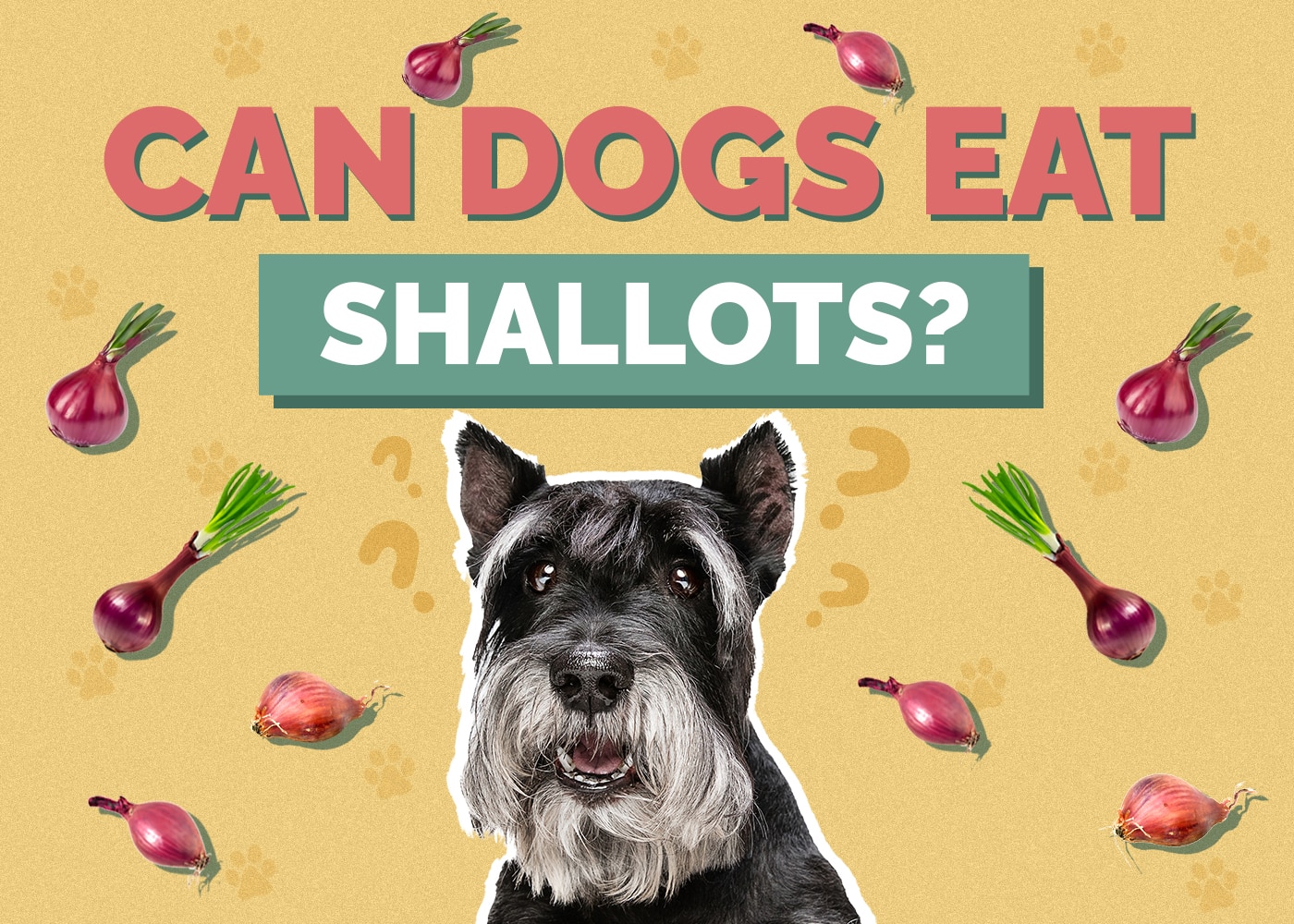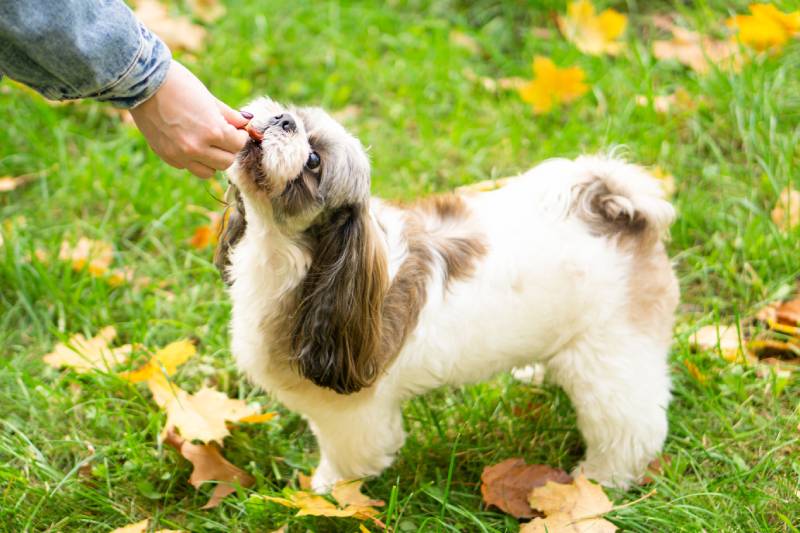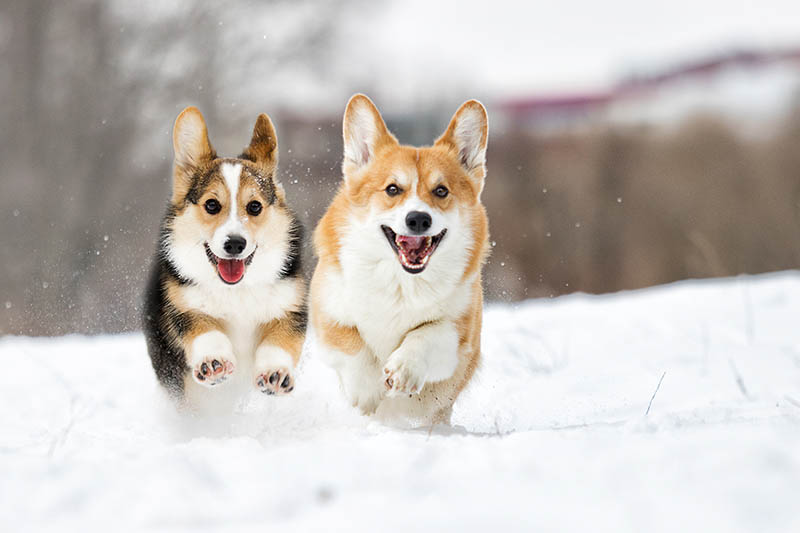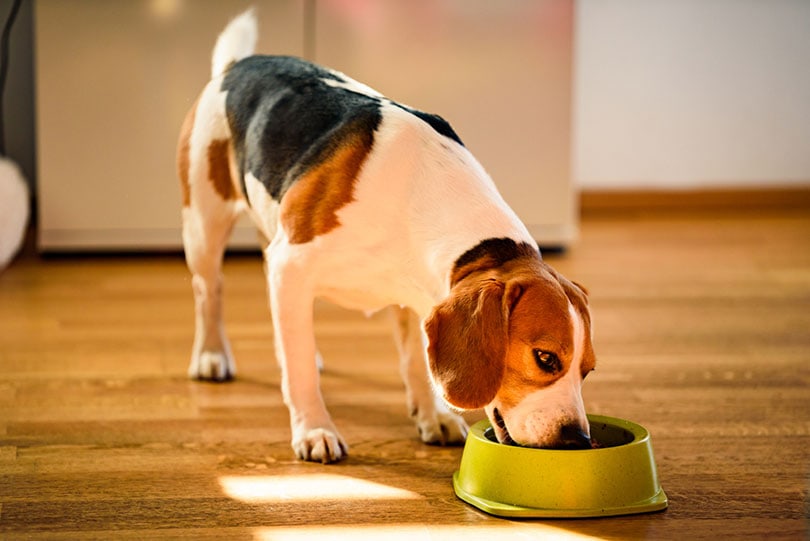Can Dogs Eat Shallots? Vet-Reviewed Concerns & FAQ
Updated on

Click to Skip Ahead
Humans may have been enjoying the company of dogs from as early as the Neolithic period 1, brought together by shared interests in food and protection. Domestication has meant that the once primarily carnivorous canine has adapted to a more omnivorous style of diet, and 30,000 years later, they are still trying to share our meals with us. Does that mean they can eat shallots?
The answer is an emphatic no.
The physiology of dogs and people is vastly different. While we can eat many of the same things, our canine companions can’t ingest everything we can without ill effects, much as they might want to.
Shallot To Know About
You probably know that grapes and raisins are toxic to cats and dogs. Perhaps you know the same caution applies to onions and garlic. Shallots are part of the same genus (Allium) as these two vegetables. They may not be as intense in flavor as the others, but they can be just as lethal. All members of the Allium genus, which also includes leeks and chives, contain sulfur-containing compounds which are responsible for toxicity by having oxidizing effects on red blood cells.

The Trouble With Alliums
Scientists have identified aliphatic sulfides and sulfoxides as poisonous agents 2, with n-propyl disulfide being the principal one. These chemicals cause oxygen-carrying hemoglobin in the blood to denature or break apart, resulting in the formation of Heinz bodies 3, in a condition known as hemolytic anemia.
Although the toxic effects of shallot ingestion begin within 24 hours, pet owners may not notice any signs until a couple of days after their dog has eaten them. Red flags of possible poisoning include:
- Lethargy
- Loss of appetite
- Exercise intolerance
- Vomiting
- GI distress
- Pale mucous membranes (gums being the easiest to assess)
- Red urine (hemoglobinuria)
- Labored breathing
- Weakness
- Collapse
Diagnosis and Treatment of an Accidental Poisoning
Detection of the Heinz bodies is a telltale sign of hemolytic anemia. Few other toxins can cause the formation of this uncommon clinical finding. A veterinarian will diagnose it based on the animal’s history and the presence of Heinz bodies, seen on a blood smear. A dog doesn’t have to consume a lot of shallots before showing signs of poisoning, with as little as 15 to 30 g/kg.
If your pup has recently eaten shallots, your vet may induce vomiting and administer activated charcoal. In other cases, the treatment may need to be more aggressive with a blood transfusion, intravenous fluid therapy, or oxygen; there isn’t an antidote for poisoning, and treatment primarily involves supportive care. Never attempt to make your dog vomit at home without speaking to your vet.
Treatment may be prolonged, requiring hospitalization. Of course, much depends on how much the animal ate, and the time between ingestion and diagnosis. Follow-up bloodwork is necessary to ensure the anemia, if present, is under control. Fortunately, fatalities are rare after eating shallots or any Allium species.
Any amount consumed in any form can cause this unfortunate series of events. It can include something as seemingly innocuous as leftover pizza. Therefore, we strongly urge you never to share any table scraps with your dog, especially those containing shallots, onions, garlic, or any other members of the Allium group. The best way to prevent poisoning is to give your pup only foods and treats formulated for dogs.
Final Thoughts
Shallots belong high on the list of things you should never give your dog or cat. Unfortunately, it doesn’t take a lot to trigger serious signs of poisoning. We recommend parents instruct their children not to give their pets any human foods – better to be overly-cautious than to end up in the waiting room of the emergency vets. We also suggest keeping your eye on your pup when near food. Although their history of domestication has made dogs keen to share what’s on our plate, it’s up to us to protect them from foods that can cause them harm.













